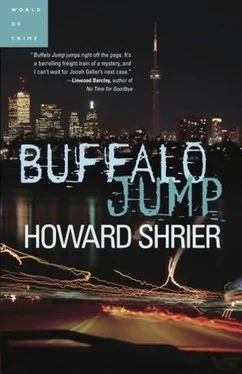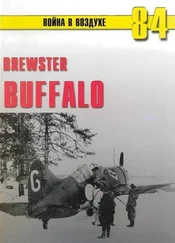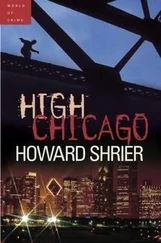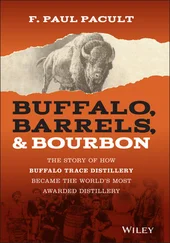Howard Shrier - Buffalo jump
Здесь есть возможность читать онлайн «Howard Shrier - Buffalo jump» весь текст электронной книги совершенно бесплатно (целиком полную версию без сокращений). В некоторых случаях можно слушать аудио, скачать через торрент в формате fb2 и присутствует краткое содержание. Жанр: Криминальный детектив, на английском языке. Описание произведения, (предисловие) а так же отзывы посетителей доступны на портале библиотеки ЛибКат.
- Название:Buffalo jump
- Автор:
- Жанр:
- Год:неизвестен
- ISBN:нет данных
- Рейтинг книги:4 / 5. Голосов: 1
-
Избранное:Добавить в избранное
- Отзывы:
-
Ваша оценка:
- 80
- 1
- 2
- 3
- 4
- 5
Buffalo jump: краткое содержание, описание и аннотация
Предлагаем к чтению аннотацию, описание, краткое содержание или предисловие (зависит от того, что написал сам автор книги «Buffalo jump»). Если вы не нашли необходимую информацию о книге — напишите в комментариях, мы постараемся отыскать её.
Buffalo jump — читать онлайн бесплатно полную книгу (весь текст) целиком
Ниже представлен текст книги, разбитый по страницам. Система сохранения места последней прочитанной страницы, позволяет с удобством читать онлайн бесплатно книгу «Buffalo jump», без необходимости каждый раз заново искать на чём Вы остановились. Поставьте закладку, и сможете в любой момент перейти на страницу, на которой закончили чтение.
Интервал:
Закладка:
Carol had been Beacon’s receptionist since it was founded by Graham McClintock after he retired from the Toronto Police Service. Somewhere near fifty, she presided over reception with total devotion to Clint, guarding his privacy and time as though both were more precious than air. She would take on a pack of pit bulls to protect him, and win. She hadn’t spared me so much as a grin since the Ensign case. I had caused grief to Clint and the firm, after all. And here I was waltzing in ten minutes late, without a collared criminal or exonerated innocent to show for it.
“Car trouble,” I said.
“Mm-hmm.”
Carol could have buzzed me in but didn’t. I dug out my ID card and swiped it through the magnetic reader fixed to the door jamb.
The Beacon office was open concept: in the centre area were four cube farms of four workstations each, each farm walled off by baffles for privacy and sound insulation. Around the perimeter were offices occupied by unit heads and senior consultants. Not long ago, I had seemed destined for one. Now I felt lucky they hadn’t stuck me in a rain-soaked doghouse in the parking lot. Since returning from my four-week injury leave, I had been given nothing but supporting roles. I’d helped other consultants run background checks on prospective employees or spouses. I’d traced paper and money trails left by embezzlers, bail jumpers and deadbeat dads. I’d pored over transcripts of other people’s interviews; reviewed videotapes to be used as evidence in other people’s cases. I had done everything but lead a case of my own.
This was hurting my income in equal measure to my pride. The firm billed clients by the hour, and the more hours you logged, the better you did. Put in enough overtime on surveillance or undercover jobs, and you could earn a good living. At the moment, I was being offered neither.
I shared my cube farm with Jennifer Raudsepp, Andy Robb and Francois Paradis. Franny was fluently bilingual and spent a lot of time on the road, working cases in eastern and northern Ontario, which had the largest francophone populations in the province. This week, he was working in town, something to do with a nursing home. Andy was a wiry little guy, five-seven and 130 pounds, and terrific at undercover work. He could blend into any setting without drawing attention to himself. He didn’t talk much but rarely missed a word other people said.
Then there was Jenn, a six-foot blonde who liked to tell people she was the shortest of four Estonian sisters. She was thirty but could pass for early twenties, with eyes as blue as a prairie sky and a smile that could make a man walk happily into a lamppost. She was also, to the chagrin of sighted straight men everywhere, openly gay. She lived with a lovely nurse practitioner named Sierra Lyons, and I got along better with both of them than I ever had with Camilla. As a trained investigator, I suppose that should have told me something.
When I first joined Beacon five years earlier, I had assumed most of the employees would be beefy ex-cops who’d put in their thirty years and wanted to top up their pensions. Clint quickly put that notion to rest.
“Cops might know how to conduct an investigation,” he said, “but they’ve always had the badge to back them up. The authority to enter someone’s home, search the place, compel them to answer questions. We don’t have that luxury. People don’t want to talk to us, they close the door and that’s that. We have to be good talkers and better listeners. If the job is surveillance or security, give me an ex-cop. If it’s money tracking, give me an ex-accountant or banker. But for undercover work or interviews, I’d hire an actor or a social worker before an old cop.”
“You were a cop,” I said.
“Yes, and after I hired myself I realized my mistake and vowed not to repeat it.”
So we had people like Andy, who before joining Beacon had been a bartender, a hot walker at Woodbine Racetrack, a warehouse worker and a night watchman. People like Jenn, who had been a member of a women’s sketch comedy troupe until she realized she’d always be looking up at the poverty line. And people like me, who’d had more false starts and accidental careers than I care to admit, including waiter, construction worker, ski guide and martial arts instructor. Among other things.
I was just settling into my chair when Andy and Jenn exited one of the meeting rooms. “Hi guys,” I said. Andy said hi-a mouthful for him-and Jenn gave me the kind of smile that made me wish she were straight or that I were Sierra Lyons.
“How you doing?” she asked.
“Not too bad,” I lied. “Where’s Franny? Monday morning flu again?”
“Haven’t heard a word.”
I fired up my computer and logged on to our media monitoring software package. If Beacon Security had been mentioned anywhere in print or broadcast media, transcripts would be waiting for me. I had customized my profile so it would also deliver stories that mentioned certain competitors, the Ministry of Community Safety and Correctional Services, which oversees our profession, and other keywords.
What my career had come to: a glorified clerk.
It wasn’t hard to predict the lead story in today’s Toronto papers: the shooting death of Kylie Warren outside the Eaton Centre, at the city’s busiest corner, in the middle of a sun-kissed Sunday afternoon. Kylie was the kind of young woman Toronto loves: athletic, blonde, an achiever from a good Leaside family with a bright future on Bay Street after completing both a law degree and the Canadian Securities Course.
Each paper had slightly differing accounts, depending on the witnesses they interviewed, but a rough consensus emerged: one group of four or five black teens walking south on Yonge came across another similar-sized group walking north. Words were spoken. Respect not paid. Shoves exchanged. Guns pulled. As one man fled across the street, another fired three shots at him. Two shots hit the wall of the restaurant Kylie was leaving. The third took most of her head off. The shooter had been identified as Dwight Junior Torrance, whose lengthy record included numerous assault, drug and weapons charges. He had been deported to his native Jamaica twice already, but kept slipping back into Canada, no doubt for the climate.
The widest coverage was in the city’s only tabloid, the Clarion, since the shooting brought together three of its most urgent concerns: guns, good-looking girls and the ineffectiveness of the left-leaning latte-loving mayor and Toronto elite. “Year of the Gun!” the headline screamed. The coverage included a two-page spread in which every person shot to death in June-a record twenty-six-was memorialized. Almost every face was young and black. Some darker-skinned, some lighter. Some with shaved heads, some with dreads or braided rows. Apart from Kylie Warren, there was only one other white face: Kenneth Page, a fifty-two-year-old pharmacist with a glorious head of grey hair and ruddy complexion, shot to death in a carjacking. Killed for nothing, like Kylie.
Until very recently, guns had been relatively rare in Toronto, whose citizens tended to kill each other with knives, beer bottles, fists, boots or any blunt object at hand. But guns were everywhere now, sweeping out of pockets, waistbands, glove compartments, backpacks and school lockers, bearing down on people like Kylie and Kenneth Page. Like me and Colin MacAdam.
I’d been on the other side of guns once-the shooting side-and hadn’t liked it any better. I knew all too well what guns could do, to both the victim and the shooter. I told Clint when I took the job that I wouldn’t accept any assignment that required me to carry a gun. He laughed and told me to relax, that Toronto wasn’t L.A.
Of course, he probably wouldn’t trust me with a stapler now, but that was fine with me.
Читать дальшеИнтервал:
Закладка:
Похожие книги на «Buffalo jump»
Представляем Вашему вниманию похожие книги на «Buffalo jump» списком для выбора. Мы отобрали схожую по названию и смыслу литературу в надежде предоставить читателям больше вариантов отыскать новые, интересные, ещё непрочитанные произведения.
Обсуждение, отзывы о книге «Buffalo jump» и просто собственные мнения читателей. Оставьте ваши комментарии, напишите, что Вы думаете о произведении, его смысле или главных героях. Укажите что конкретно понравилось, а что нет, и почему Вы так считаете.












